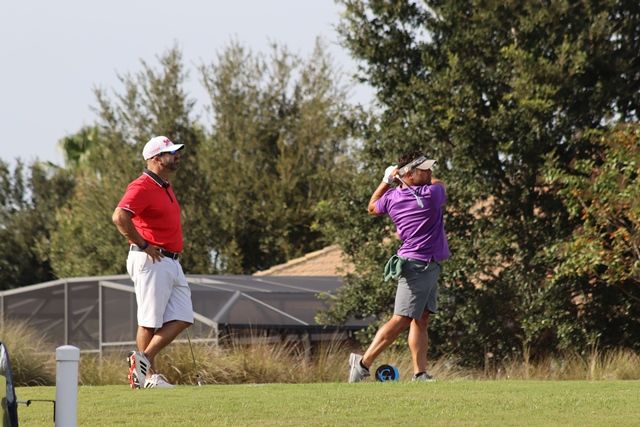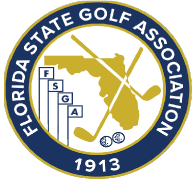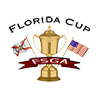Written by: Darin Green, Senior Director of Rules & Competitions
The FSGA conducts qualifiers for USGA National Championships and FSGA State Championships, and we are in the middle of what we call “qualifying season.” With so many qualifiers being conducted, some interesting rulings take place. Below are a few rulings that occurred recently.
 Ruling 1
Ruling 1
On a short par three, a player hit his tee shot left of the green near the out of bounds line. He announced he was playing a provisional ball and hit the provisional onto the putting green about 15 feet from the hole. The player arrived in the area where he thought his original ball was and found a ball in the deep rough in bounds. He took approximately 60 seconds to search for the ball. He chipped the ball onto the putting green. As he was marking and lifting the ball on the putting green, he noticed that it was not his original ball; he played a wrong ball. He returned to the area where his original ball was likely to be and searched for another two minutes. After a total of three minutes of searching, his original ball was lost and his provisional became the ball in play. Luckily, he never picked up his provisional so there were no additional penalties. He took two more strokes with his provisional ball and finished the hole.
What score did he make?
Stroke 1 - Tee shot at original ball
Strokes 2 & 3 – Penalty strokes for playing a wrong ball
Stroke 4 – Penalty stroke for lost ball and playing under stroke-and-distance
Stroke 5 – Tee shot at provisional ball that eventually became the ball in play
Stroke 6 – First putt
Stroke 7 – Tap-in putt
The stroke at the wrong ball does not count.
Ruling 2
Two friends were playing a practice round the day before a qualifier for the U.S. Senior Open. On the final hole of their practice round, they accidentally swapped their wedges and placed them in their bags. The next day, one of the friends started his qualifying round without noticing that he was missing his wedge and had a foreign wedge in his bag. The second friend arrived at the first tee for his starting time about 30 minutes later and noticed that he was missing his wedge and had a random wedge in his bag. The friend that already started his round was on the third tee, which is very close to the first tee. The two players were about to swap back their wedges when another player stopped them and asked for an Official.
The Official heard what was happening, confirmed the ruling over the radio with the Committee, and told the players the following:
Player A (on 3 tee) – Since you started your round with those clubs, you are stuck with those 14 clubs. You may continue to play with your friend’s wedge and you must not add the wedge that was accidentally in your friend’s bag.
Player B (on 1 tee, but hasn’t started his round) – You must not retrieve the wedge that has already been selected for play on the course. You may play with your friend’s wedge that you have in your possession or you may get rid of that wedge and start with 13 clubs.
Ruling 3
In the middle of his round, a player’s driver shaft broke during his swing. He happened to be carrying another shaft in his bag and asked an Official if he can replace the broken shaft with the spare shaft in his bag. The Officials onsite debated the ruling, and even called me for assistance. After some digging, we agreed that the player must not use the spare shaft that he was carrying in his bag. The player had the following options: 1) may continue to use the driver in its damaged state, 2) replace the driver with another club, or 3) repair the driver with components that are brought to him (for instance, a new shaft may be brought to him from the clubhouse).
Clarification 4.1b(4)/1 says that Rule 4.1b(4) restricts a player from building a club from parts being carried by or for the player. While I’m not certain, I presume the purpose of this Rule is to prohibit a player from starting with less than 14 clubs and then building (assembling) clubs during the round to meet whatever needs the player encounters.
If you have questions or topics that you would like covered in these rules articles please email them to dgreen@fsga.org. Have a great summer.





